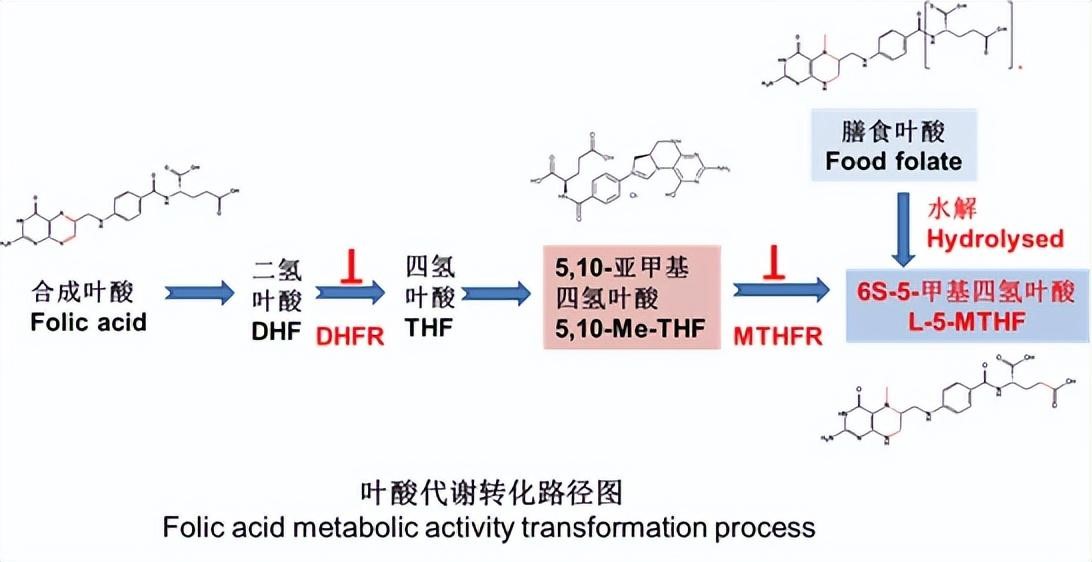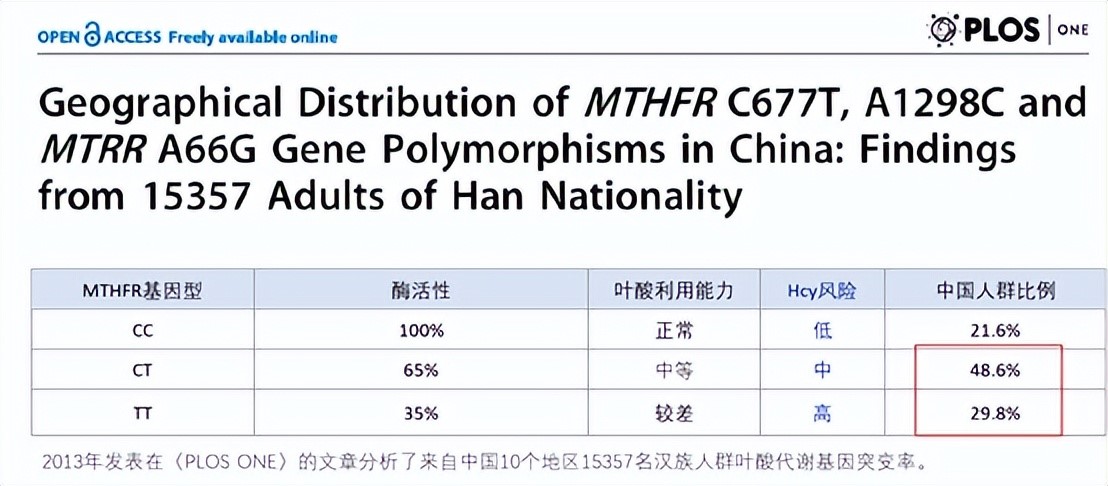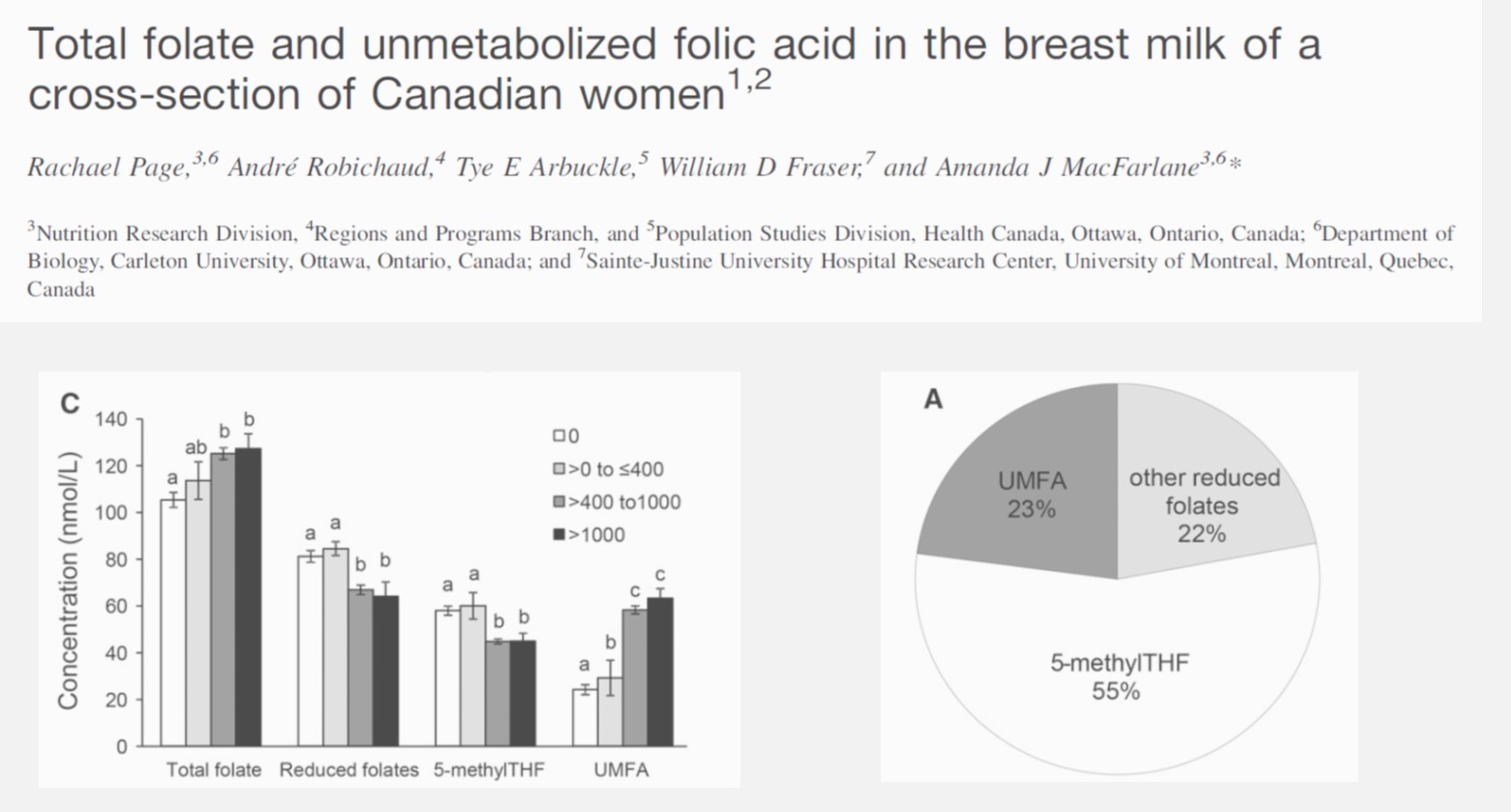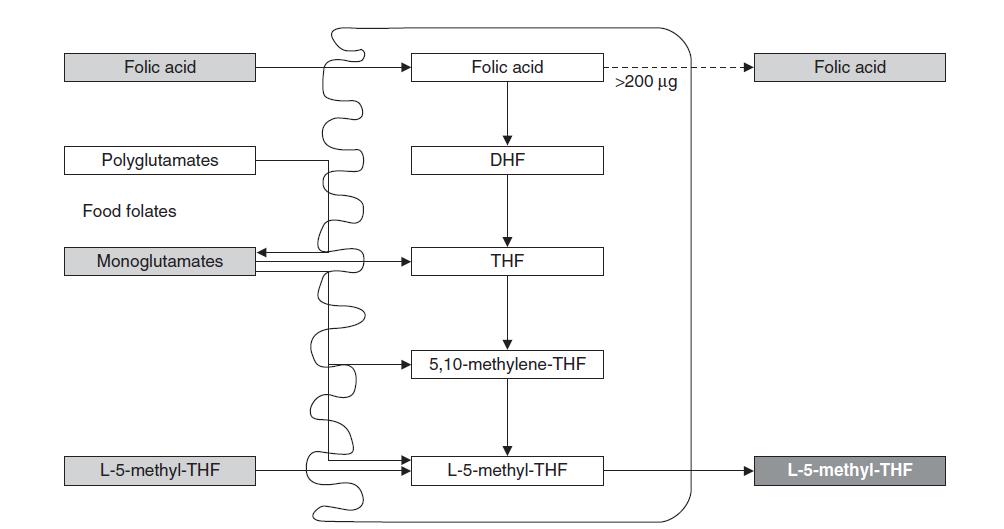Folate, a water-soluble B-vitamin, plays an indispensable role in various stages of our lives. From the rapid cell division during embryonic development to the normal cell renewal and DNA synthesis in adulthood, folate is involved in all these processes.
However, folate deficiency is a problem that cannot be ignored. It can not only lead to birth defects in newborns, such as neural tube defects and congenital heart disease, but is also closely related to various diseases in adults, including cardiovascular diseases, tumors, and diabetes.
Faced with the wide array of folate products on the market, how should we choose? This article will provide a detailed analysis of the development and selection points of folate.

I. Classification of Folate
The folate family has many members, which can be classified into the following categories based on their sources and activity levels:

Natural (Food) Folate: Mainly found in foods such as liver, green leafy vegetables, and legumes. However, natural folate is highly reactive and easily degrades during food processing and storage, making it difficult to extract and preserve in large quantities. Therefore, it is not a primary source of folate supplementation.
Synthetic Folate: This is the common form of folate supplements we see, chemically known as Folic acid. It is an artificially synthesized form of folate with the advantages of chemical stability, low cost, and easy industrial production. However, synthetic folate itself has no biological activity and needs to be converted into 5-methyltetrahydrofolate through a series of enzymatic reactions in the human body to be absorbed and utilized.
Active Folate: This is the primary form of folate in the human body, which can be directly absorbed and utilized without the need for enzymatic metabolism. The main form of active folate in the human body is 6S-5-methyltetrahydrofolate, accounting for more than 98%.
Naturalization Folate: Based on active folate, the production process has been further optimized to remove potential safety hazards such as heavy metals and genotoxic raw materials, achieving a practically non-toxic level. It is more suitable for groups with high safety requirements, such as pregnant women and infants. Not only does it retain the advantages of active folate, but it also further enhances the product's safety and purity, making it an ideal choice for folate supplementation.
II. Metabolic Process of Folate in the Body
Synthetic folate needs to undergo a series of enzymatic reactions in the body to be converted into its active form, 6S-5-methyltetrahydrofolate. This process involves the absorption of synthetic folate in the intestine, followed by reduction to dihydrofolate by dihydrofolate reductase, and further reduction to tetrahydrofolate. Tetrahydrofolate is then converted to 5,10-methylenetetrahydrofolate, and finally, under the action of 5,10-methylenetetrahydrofolate reductase (5,10-MTHFR), it is converted into 6S-5-methyltetrahydrofolate, which can be directly absorbed by the human body.

However, folate metabolism is not always smooth. Genetic polymorphisms in folate metabolic enzymes, such as the MTHFR 677TT genotype, which is prevalent in 78.4% of the population in China, can lead to folate metabolic disorders.

These metabolic disorders significantly reduce the effectiveness of synthetic folate supplementation, highlighting the importance of finding more efficient and safer forms of folate supplementation.
III. Hazards of Folate Metabolic Disorders
Folate deficiency caused by abnormal folate metabolic enzyme genotypes can lead to a series of health problems. During embryonic development, folate deficiency can increase the risk of birth defects such as neural tube defects and congenital heart disease. In adults, folate metabolic disorders are closely related to the occurrence of cardiovascular diseases, tumors, diabetes, and nervous system diseases. These diseases not only affect an individual's quality of life but also place a heavy burden on social medical resources.

Moreover, when the daily intake of synthetic folate exceeds 200μg, it can lead to the presence of unmetabolized folic acid in the circulation. The accumulation of unmetabolized folic acid in the body can reduce the immune response of natural killer cells, increasing the risk of diseases such as tumors, leukemia, colorectal cancer, and prostate cancer.

Studies have also found that unmetabolized folic acid can cause abnormal embryonic heart development, increasing the risk of congenital heart disease in offspring, further highlighting the hazards of folate metabolic disorders.

IV. Comparison between 6S-5-Methyltetrahydrofolate and Synthetic Folate(FOLIC ACID)
6S-5-methyltetrahydrofolate, as an active form of folate supplement, is not affected by genetic polymorphisms in folate metabolic enzymes and can be directly absorbed and utilized by the body without the need for complex metabolic conversion processes. This makes 6S-5-methyltetrahydrofolate more efficient and bioavailable in folate supplementation, suitable for various populations, especially those with folate metabolic disorders.

V. A Safer Source of Folate for Mothers and Infants: Naturalization Folate
For pregnant women and infants, safety is the primary consideration in folate supplementation.

Naturalization folate (Magnafolate®), based on 6S-5-methyltetrahydrofolate, has further enhanced safety. Through innovative process treatment, Magnafolate® avoids potential safety hazards such as formaldehyde, heavy metals, and p-toluenesulfonic acid, and strictly controls the limits of impurities such as JK12A and 5-methyltetrahydropteroinic acid, achieving a practically non-toxic level. It can be regarded as the "guardian angel" of the folate world.

Magnafolate® can provide a safe and effective source of folate supplementation for mothers and infants, helping babies grow up healthily and laying a solid foundation for their future.
Conclusion
In summary, folate and its active form, 5-methyltetrahydrofolate, play a crucial role in maintaining human health. A deep understanding of the classification of folate, its metabolic pathways, and the potential risks of metabolic disorders is essential for choosing the appropriate folate supplement. This not only helps prevent various diseases but also effectively safeguards the health of mothers and infants. Among them, Magnafolate®, as a safer and more efficient choice for folate supplementation, shows broad application prospects and is worth further promotion and application.
References
Lian Zenglin, Liu Kang, Gu Jinhua, Cheng Yongzhi, et al. The Biological Characteristics and Applications of Folate and 5-Methyltetrahydrofolate. China Food Additives, 2022, Issue 2.

 Español
Español Português
Português  русский
русский  Français
Français  日本語
日本語  Deutsch
Deutsch  tiếng Việt
tiếng Việt  Italiano
Italiano  Nederlands
Nederlands  ภาษาไทย
ภาษาไทย  Polski
Polski  한국어
한국어  Svenska
Svenska  magyar
magyar  Malay
Malay  বাংলা ভাষার
বাংলা ভাষার  Dansk
Dansk  Suomi
Suomi  हिन्दी
हिन्दी  Pilipino
Pilipino  Türkçe
Türkçe  Gaeilge
Gaeilge  العربية
العربية  Indonesia
Indonesia  Norsk
Norsk  تمل
تمل  český
český  ελληνικά
ελληνικά  український
український  Javanese
Javanese  فارسی
فارسی  தமிழ்
தமிழ்  తెలుగు
తెలుగు  नेपाली
नेपाली  Burmese
Burmese  български
български  ລາວ
ລາວ  Latine
Latine  Қазақша
Қазақша  Euskal
Euskal  Azərbaycan
Azərbaycan  Slovenský jazyk
Slovenský jazyk  Македонски
Македонски  Lietuvos
Lietuvos  Eesti Keel
Eesti Keel  Română
Română  Slovenski
Slovenski  मराठी
मराठी  Srpski језик
Srpski језик 








 Online Service
Online Service